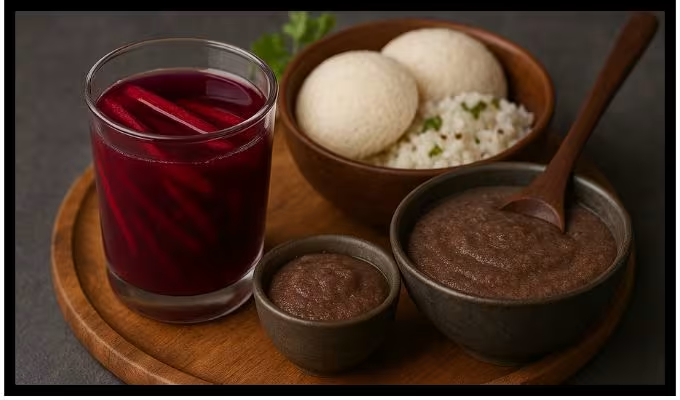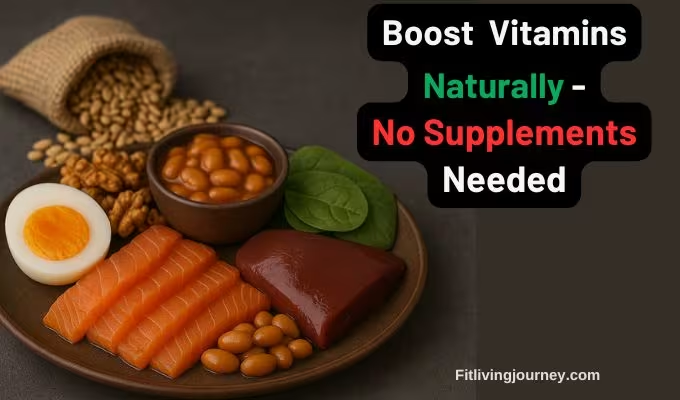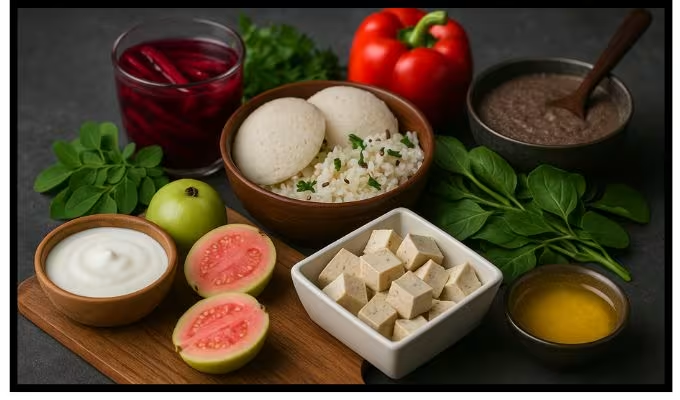Top 3 Vitamins Your Body Needs
Feeling Tired or Low on Energy? The Real Reason Might Be Your Diet
Do you ever feel tired for no reason, like your body is running on low battery even after a full night’s sleep?
Maybe your skin looks dull or your mood swings more than usual, or perhaps your memory isn’t as sharp as it used to be.
But here’s the thing—the real reason for all these problems could be hiding in your plate—or rather, what’s missing from it.
Today, let’s look at the top three vitamins that your body absolutely needs.
More importantly, let’s see what happens if you don’t get enough of them and how you can naturally include them in your diet through unique recipes.
1. Vitamin B12 – The Silent Support System
Vitamin B12 is often overlooked, yet it’s very important.
It’s like your body’s silent support system, working in the background to ensure everything runs smoothly.
It’s essential for energy, making red blood cells, and keeping your brain and nerves in good shape.
Whenever you’re low on it—and many vegetarians unknowingly are—things start to feel off.
You might feel exhausted no matter how well you sleep.
You could feel foggy, like your thoughts are wading through water.
Sometimes there’s even tingling in your fingers or strange numbness in your toes.
The tricky part? B12 doesn’t naturally occur in most plant-based foods.
But there are ways to get it in a vegetarian diet. You may not get adequate quantities from one food item, so you have to follow a weekly system.
Natural Vegetarian Sources of B12
- Kanji: A fermented drink made with beetroot, carrot, and mustard seeds. Keep it in sunlight for a day or two. Drink 2–3 times a week.
- Homemade curd and buttermilk: Desi cow milk, High in B12 and supports gut bacteria for better absorption.
- Fermented ragi malt (Ambali): Soak ragi overnight to make a thin porridge. Fermentation increases gut flora to help absorb B12.
- Idli-dosa batter: Soaked rice and urad dal are fermented overnight, producing B12 naturally. Use clean clay or ceramic vessels for best results.
- Curd rice: Leave it overnight at room temperature. Natural fermentation grows helpful bacteria that produce small amounts of B12.
- Desi cow ghee: Not directly high in B12, but supports gut health, aiding absorption if B12 is present in the system.
The B12 System to Follow
1. Every day include one fermented food like dahi, dosa, idli, or ambali.
2. Twice a week, drink kanji in the morning.
3. Twice a week, eat overnight curd rice.
4. Start your day with 1 tablespoon desi ghee on an empty stomach.
Avoid gut-disturbing items like excess tea, coffee, sugary drinks, and packaged junk food. Avoid antibiotics when possible.
Take 1 teaspoon of Triphala Churn with warm water at bedtime once a week to keep your colon clean and boost microbiota.

2. Vitamin D – The Sunshine Vitamin
Vitamin D is made by the body when exposed to sunlight.
But here’s the problem—between sunscreen, long working hours, and city living, most people aren’t getting enough sunlight.
When that happens, your bones and muscles start feeling the pinch.
You may experience aching joints, frequent colds, low moods, or even depression.
Studies have shown that maintaining adequate vitamin D levels is vital for mental health.
Natural Ways to Boost Vitamin D
- Sunlight: Just 10–15 minutes a day is enough. The best time is 1–3 hours after sunrise. Gentle morning light works best—no need for harsh afternoon sun.
- Mushroom Tofu Stir Fry
1. Ingredients: 1 cup mushrooms (sunlight-exposed), ½ block tofu (fortified), 1 tsp sesame oil, pinch of rock salt, black pepper or crushed curry leaves, spinach or moringa leaves.
2. Method: Heat sesame oil in a pan. Add mushrooms and tofu. Sauté till golden. Add greens and stir until wilted.
Season with salt and pepper. Serve with brown rice or chapati.
3. Vitamin C – The Glow Vitamin
Vitamin C is known for boosting immunity, but it also helps the body heal wounds, build collagen, and absorb iron from plant-based foods.
If you bruise easily, catch colds frequently, or your skin looks tired and dry, your body may be lacking vitamin C.
Everyone talks about oranges, but one guava has more vitamin C than oranges.
Even more powerful is amla (Indian gooseberry)—which contains 20x more vitamin C than an orange.
Amla Chaat – A Zesty Vitamin C Recipe
1. Ingredients:
- 1 small guava (chopped)
- 1 amla (grated)
- ¼ red bell pepper (chopped)
- Chaat masala, black salt, lemon juice, fresh coriander
2. Method: Mix all ingredients in a bowl. Add lemon juice and spices. Toss well.
If your body is sending you signals—low energy, mood dips, brain fog—it might be time to check your vitamin levels.
Final Word
Use everything you learned today to give your body the right dose of these three top vitamins:
- Vitamin B12 for energy and nerve function
- Vitamin D for bones, mood, and immunity
- Vitamin C for healing, glowing skin, and iron absorption
FAQ
Q1. How do vegetarians get enough Vitamin B12 naturally?
Ans. Vegetarians can include fermented foods like kanji, curd, idli-dosa, and ragi malt, along with desi ghee and curd rice to naturally improve B12 levels.
Q2. What is the best time to get sunlight for Vitamin D?
Ans. The ideal time is 1 to 3 hours after sunrise. Gentle morning sunlight is enough for your body to produce Vitamin D.
Q3. Why is Vitamin C important beyond immunity?
Ans. Vitamin C helps build collagen, heal wounds, and absorb plant-based iron. It also supports healthy skin and energy levels.
Q4. What are the signs of Vitamin B12 deficiency?
Ans. Tiredness, brain fog, numbness in fingers or toes, and low energy despite good sleep may signal a deficiency in Vitamin B12.
[ Cold Water Bath for Weight Loss ]


